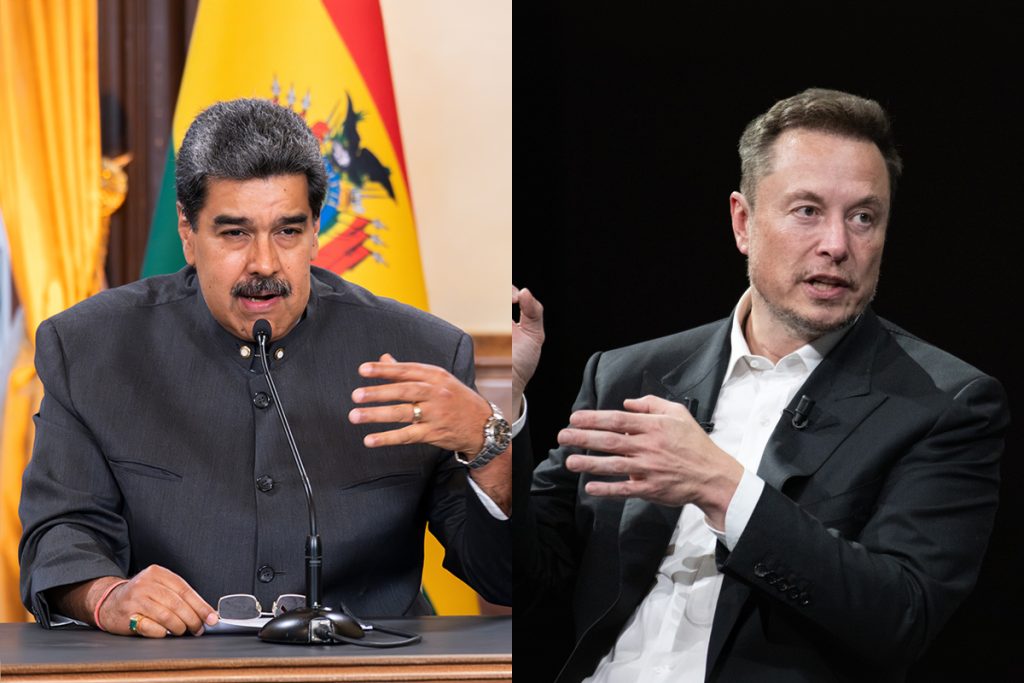Venezuelan President Nicolas Maduro has announced a plan to ban the social media platform X, formerly known as Twitter, in Venezuela for ten days. This decision follows a public clash with X’s owner, Elon Musk, over the country’s recent contested election. Maduro claims the ban is necessary to prevent the incitement of “hatred, fascism, and civil war,” which he alleges Musk has been promoting on the platform.
The proposal, signed with the National Telecommunications Commission (Conatel), aims to temporarily remove X from circulation. This action highlights Maduro’s efforts to control the narrative surrounding the disputed election. Critics argue that this move is a blatant attempt to stifle dissent and suppress information that contradicts the official government line.
Dispute with Elon Musk
The conflict between Maduro and Musk erupted when Musk criticized the Venezuelan election on X, accusing Maduro of committing major election fraud. Musk’s comments echoed the sentiments of the United States and other Western countries, which maintain that Maduro lost the election. Maduro, in response, accused Musk of conspiring against Venezuela and undermining its sovereignty.
This public spat has drawn significant international attention, further polarizing opinions on the legitimacy of Maduro’s government. The exchange between the two high-profile figures underscores the deep divisions within Venezuela and the broader geopolitical implications of the disputed election.
Criticism Extends to WhatsApp
Maduro’s dissatisfaction with social media is not limited to X. He has also targeted WhatsApp, a messaging app owned by Meta. Maduro announced that he would remove WhatsApp from his phone and urged his followers to do the same. This move indicates a broader crackdown on platforms he perceives as threats to his administration.
By attacking multiple social media platforms, Maduro seems intent on limiting the tools available for organizing opposition and disseminating information. This strategy aligns with his broader efforts to maintain control over the flow of information within Venezuela, particularly in the wake of the controversial election.
International Response and Domestic Unrest
The United States has taken a clear stance against Maduro’s claim of victory. U.S. Secretary of State Antony Blinken recently stated that Edmundo González Urrutia, the opposition candidate, won the most votes in the July 28 presidential election. This view is shared by several Western nations and is supported by key opposition leaders in Venezuela.
In response, Venezuela’s foreign minister, Yvan Gil, dismissed the U.S. statement as “ridiculous” and accused Washington of attempting to orchestrate a coup. Despite these denials, widespread protests have erupted across Venezuela. Citizens are demonstrating against what they see as an illegitimate election result, further destabilizing the already volatile political climate.
Consequences for Venezuela’s Future
The recent election is seen as one of the most significant in Venezuela’s recent history. The country’s democracy is at a crossroads, with hopes of economic recovery hanging in the balance. Many young opposition supporters have expressed their intention to leave Venezuela if Maduro remains in power, citing the severe economic collapse and violent repression that have characterized his rule.
An energized opposition movement had coalesced around presidential candidate Edmundo González Urrutia, forming a coalition that posed the most significant challenge to Maduro’s rule in 25 years. Despite strong polling figures and widespread support, the electoral body, stacked with regime allies, declared Maduro the winner with 51% of the vote. This outcome has only deepened the country’s political crisis and raised questions about the future of its democratic institutions.
Maduro’s actions, including the temporary ban on X and criticism of other social media platforms, highlight his administration’s ongoing efforts to control information and maintain power. As Venezuela navigates this turbulent period, the international community will be closely monitoring the situation, with the future of the country’s democracy and economic stability hanging in the balance.


